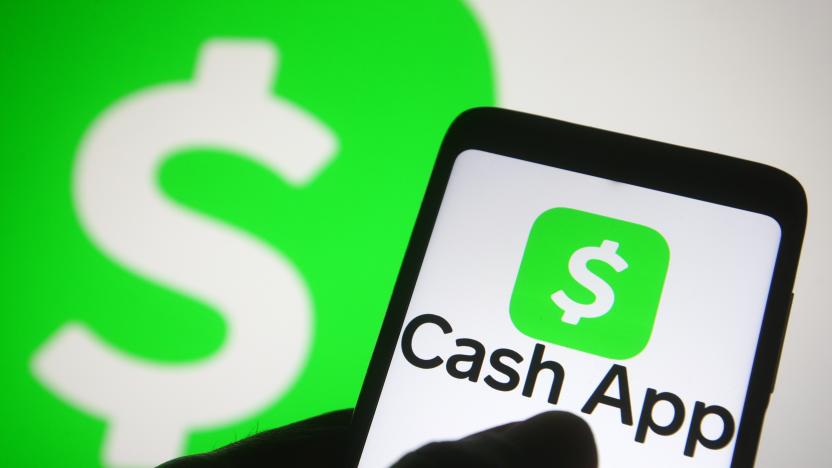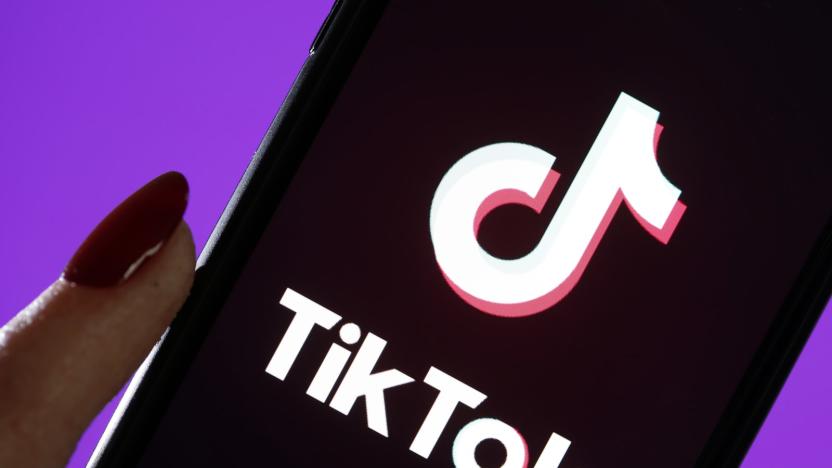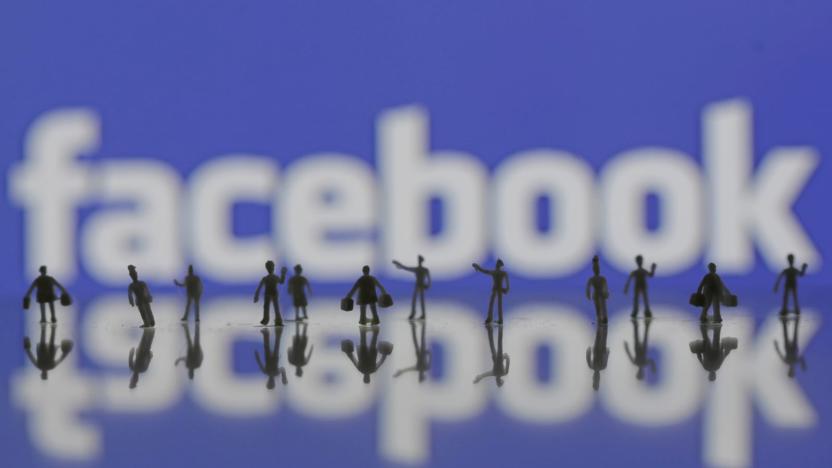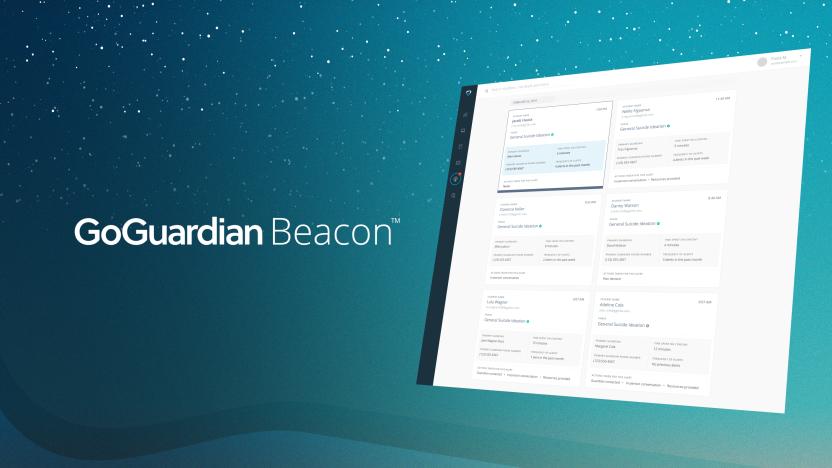teenagers
Latest

Square makes its Cash App available for teen use
But they'll need parental permission to use it and there's no bitcoin trading allowed.

YouTube will expand parental controls for tweens and teens
Supervised accounts will enable content settings and limit some features.

Juul's app-connected e-cigarette keeps tabs on your vaping
E-cigarette manufacturer Juul has come under fire for contributing to teen smoking rates. Recently, the company has been scrambling to demonstrate its products are aimed at adults, not teens. Its latest defense is an app-connected e-cigarette which requires users to be over 18.

India lifts ban on TikTok
An Indian state court moved to lift a nationwide ban on the popular short-form video app TikTok. A nearly week-long ban in India on the app is now reversed, lawyers involved in the case told Reuters on Wednesday. Google and Apple removed the app from its stores in India last week after a high court in Tamil Nadu called for its removal, saying it was exposing children to sexual predators and pornography. The ban in India was a major setback for TikTok, due to India being its largest user base with nearly 300 million users. ByteDance, the Chinese company that owns TikTok, estimated in a court filing that the ban was losing the company nearly $500,000 a day.

To Facebook, your privacy is worth a $20 gift card
Another day, another Facebook controversy. The latest backlash follows a TechCrunch report that the company was secretly paying teenagers to access their data and basically monitor their every move on the web. Facebook was asking people to install a VPN app called Facebook Research that gave it full access to a user's phone and internet activity. That, according to security expert Will Strafach (who helped TechCrunch with the investigation), gave the company the ability to continuously collect "private messages in social media apps, chats from in instant messaging apps (including photos/videos sent to others), emails, web searches, web browsing activity and even ongoing location information."

School internet filter maker launches suicide risk detector
A company that makes internet filters and Chromebook management software for schools is launching a product today that detects when K12 students are at risk of suicide or self harm. GoGuardian serves about 4,000 school districts in the US, totaling about 5.3 million students, and is meant to act as "an early-warning system to help schools proactively identify at-risk students to quickly get them the assistance they need."

Recommended Reading: Pro soccer players train with video games
How Soccer Players Are Getting Smarter On the Field With Brain-Training Video Games Tom Taylor, Sports Illustrated Athletes are employing all kinds of tech during training to gain a competitive edge while tracking progress. Sports Illustrated tells the story of European soccer clubs that are using a brain-training video game to help with cognitive skills and tactics. The smaller clubs don't have a bank account similar to the likes of Manchester City or Real Madrid, but IntelliGym offers another way to improve on the pitch.

UK teens say Instagram is the worst app for cyberbullying
New research claims Instagram is home to more cyberbullies than any other social media platform. The findings form part of UK anti-bullying charity Ditch the Label's annual survey, which consulted over 10,000 young people aged 12 to 20.

Millions of kids used e-cigarettes last year
Stephen Dorff is apparently more influential than we all thought -- if the youth of America even know who he is. Last year 3 million middle-schoolers and high-school students used e-cigarettes as their preferred method of tobacco delivery, according to a report by the Center for Disease Control. The CDC says that this carries over from 2014, where e-cigs were the most used tobacco product among those surveyed. In 2011, e-cigs represented 1.5 percent of overall tobacco use among that population and in 2015 the number skyrocketed to 16 percent. That's despite cigarette and cigar usage dropping during the same period. So yeah, kids really like battery-powered smokes.

6 world-changing innovations by teenage geniuses
By Cat DiStasio Solutions to some of the world's most challenging problems are coming from an unlikely place: teenagers. Around the world, young inventors are developing gadgets and techniques that address issues ranging from ocean pollution to biofuels to food production. These incredible inventions are just a few highlights from teens who bring a fresh perspective and a hunger for real-life problem-solving. Hopefully, we'll be reading about these young geniuses again years down the road, as they become stars of their own STEM careers.

Tocomail for Gmail puts parents in control of teens' email
Tocomail for Gmail is a kid-friendly Gmail client designed specifically to make emailing a simpler and safer experience so that parents don't have to worry. The vibrant, colorful UI and fun tools is sure to grab the attention of young ones while the robust control over who they can communicate with is sure to give parents peace of mind. The app is free and includes in-app purchases. Of course, using Tocomail requires a Google account with an active Gmail account attached to it. When you're logged in, your first impression is probably that the app looks incredibly childish. However given its target demographic, that's a compliment. If you search Tocomail in the App Store, you may notice a very similar app is available: Tocomail - Safe Email for Kids. What's the difference? Apparently, that app is actually for even younger kids, while Tocomail for Gmail is geared more toward older kids and teenagers. It's probably a bit unnecessary for teenagers, so I imagine the differences between the two are comparable to a kids' meal and a big kids' meal at a fast food restaurant. The color scheme of the inbox (and the entire app) is a mix of bright blue and to my mediocre eye either a yellow or very light green. Emails are organized reverse chronologically and categorized as such. Everything about Tocomail is dead simple to use. The button on the top right composes a new message and the top left opens all your contacts listed on the left as well as additional app settings - more on that later. The Compose window features a To line, Subject line and text box to type your message and nothing more. The paper clip icon that usually attaches a file instead can add a photo from your camera or gallery, but the app also has a built-in drawing feature with an extensive range of tools and colors for kids to get creative drawing a picture to attach to an email. Where parents get control is in the Settings. Here is a mail lock to restrict access to email using a 4-digit PIN that either parents or children choose to set, or more importantly is the Parents Settings section. This is where the app enables Safe, General and Blocked contact lists. It also adds a Quarantine box to the app where Tocomail places potentially unsafe emails for approval or rejection. These controls come at a cost though and it's unfortunately not a small one. The Parents Settings is available through the app as an in-app purchase for US$9.99. Yes, ten bucks to keep those pesky teens of yours in line online. Tocomail for Gmail is a smooth app with good performance, a user friendly design and a decent set of features to ensure that email use among kids and teens doesn't get out of hand. My problem with it though is that it really shouldn't be aiming at teens. Teenagers, generally kids with ages ranging from 13 to 17, don't want to feel like children that can't maintain a credible online presence. The bright blues and yellows in Tocomail and the strict control over email doesn't seem appropriate for kids in high school and very shortly starting college. It's babyish. Besides, email isn't hip anymore anyway; monitoring your teen's social network profiles is probably more beneficial. Despite all this, if Tocomail for Gmail's motives match yours, it does work well and is worth a download for either iPhone or iPad.

Ask Engadget: best smartphone for a teenager?
We know you've got questions, and if you're brave enough to ask the world for answers, then here's the outlet to do so. This week's Ask Engadget inquiry is from Gingernut2K, who wants to talk about responsible parenting and not being too much of a snooper. If you're looking to ask one of your own, drop us a line at ask [at] engadget [dawt] com. "I've always felt that talking to your kids and trusting them to be responsible is much better than trying to seal them in cotton wool. The problem? My daughter's turning 14 and as she's allowed to go out (under curfew) we think it's time that she gets a phone, and she's been saving up for a smartphone. Now, I trust her, but it's not difficult to find adult material online, or even just be vulnerable to malicious messages from unscrupulous types. My question: is there a smartphone that's both secure enough that I don't have to worry, but also that I can access even if she passwords it? Man, writing that last sentence made me feel dirty." A tricky question, but one that's well worth answering. We're sure that plenty of you out there are parents who have struggled with a similar dilemma, so we'd love to hear what your solution was. Did you go for a carrier-based filtering plan like Verizon's Family Safeguards or a software-based approach like phonesheriff? How do you talk about the internet to your kids and how can we encourage sensible internet use? Share your experiences in the comments below.

Piper Jaffray: Half of US teens own an iPhone, iPad very popular
Piper Jaffray has published a "Taking Stock with Teens" report [PDF] that examines US teenagers' buying habits. The study looked at two groups of teenagers around 16 years of age: 1,600 from upper-income families and 3,600 from average-income families. The study found that nearly half (48 percent) of American teenagers own an iPhone -- an 8 percent rise since the previous survey. Further, 62 percent of teens plan on making the iPhone their next smartphone purchase. The survey also found that 51 percent of teens owned a tablet, up from 44 percent in fall 2012. The iPad share of that is 68 percent, down from 72 percent in the previous survey. Additionally, 17 percent of teens said they plan to buy a tablet in the next six months, with 68 percent of those planning to buy an iPad. And 54 percent said they planned to buy a regular iPad, while 14 percent said they would buy an iPad mini. Apple information aside, the entire report is worth taking a look at. It covers everything from teen shopping habits, to social media habits, to movie rental and video game habits.

The parent's guide to video gaming for kids
If there's one thing concerned parents of young video gamers need to know, it's how important it is to acknowledge and support kids' love of games. Why an increasingly media-savvy culture continues to vilify gaming -- now a mainstream activity enjoyed on smartphones, tablets, and computers by Americans of all ages -- is somewhat confounding. Video games represent nothing more (or less) than another type of entertainment media, right alongside books, movies, and television. Just as responsible parents keep an eye on the books, TV shows, and movies their kids are into, they should do the same with games. The bottom line: a reasonable, age-appropriate approach to the quantity and quality of the media kids enjoy. As the parent of a young gamer, your strategy is to remain figuratively plugged in to whatever they're doing. Don't all parents want to support their kids' hobbies? We want to know what they're doing, who they're with, whether they're safe, whether they're taking away some sort of life skill as well as enjoying some good, old-fashioned fun ... What you might not have considered is that gaming for many kids represents a full-fledged hobby. What's your role as a parent, then? To be fair, you'll want to give your child's fascination with gaming the same level of scrutiny and support as you would the your little girl's love affair with karate or your teenaged son's involvement in a garage band. Whatever captivates your child's imagination should also attract your parental periscope. We're not suggesting you plunk down to dutifully monitor your child's every mouse click in a game like World of Warcraft. Frankly, your kids don't want or need a hall monitor. But they do need your boundaries, your guidance, your feedback, your enthusiasm, and your support -- all the same things you'd bring to their karate competitions or their band concerts.

Nielsen: more than half of US teens now own smartphones
Yes, we know Android is holding steady at about 52 percent of US smartphone market share. What's interesting is just who's driving growth as a whole. According to Nielsen, 58 percent of American teens between 13 and 17 now have a smartphone -- that's a big jump from 36 percent a year earlier and a sign that the youngest owners have a significant sway over where the market is going. Not that young adults don't have an impact. Although the 25-to-34 crowd isn't making as big a comparative leap, its smartphone ownership has climbed from 59 percent to a dominating 74 percent in the same space of time. No matter how much youth set the pace, it's clear Android is still having an effect. Among the US smartphone buyers Nielsen tracked in the three months leading up to July, 58.6 percent went Google's direction. Most of that gain came from BlackBerry owners switching allegiances, which doesn't bode well when RIM is counting on existing owners to fuel BlackBerry 10 demand. We'd be careful about citing a one-point shrink in iPhone sales as a shift in the balance of power, however -- while it could be part of a trend, it could also represent the habitual lull in Apple's sales during the weeks before a major iPhone introduction.

AT&T developing tech to help parents keep teenagers from texting and driving, hopes to save lives
By now, you're likely aware of some of the repercussions that come with shooting an innocent text to a friend while being behind the wheel. Well, in an effort to keep these unfortunate accidents from ever occurring, the AT&T Foundry's been hard at work, hoping to come up with solutions to help with this serious matter. Most recently, the Rethink Possible outfit showed off an application that's currently in the works; one that allows parents to track their teenage drivers' every move, as well as remotely turn off calls and disable all messaging features -- which the carrier says will be a great compliment to its DriveMode app. It's worth noting the unnamed application was being showcased on one of Cupertino's slates, but AT&T's said it's willing to work with "device makers, car makers and developers," as the ultimate goal is to ultimately "encourage more solutions." There's a video past the break for your viewing pleasure, and we think it's worth all of its 197 seconds of airtime.

Officers' Quarters: How to earn respect as a teen officer
Every Monday, Scott Andrews contributes Officers' Quarters, a column about the ins and outs of guild leadership. He is the author of The Guild Leader's Handbook, available from No Starch Press. Teenagers as a whole have a terrible reputation in online games. In WoW, they are blamed for everything that's wrong with the community. People say they have no patience, they don't know how to play the game, they ruin chat channels with mindless chatter, and they're selfish, whiny, lazy, disrespectful, and entitled. Certainly some of the people who fit these accusations are teenagers. However, not every teenager acts this way, and a good portion of the people who do are actually adults. On the internet, unfortunately, perceptions tend to win out over reality. This week, a teenaged officer asks how she can earn the respect of her peers. Hello there Scott- Our guild currently is going through some major issues at the moment when it comes to who shall be running what when it comes to what is occuring in the guild. ... About a month or two ago, our guild leader ... decided to call it quits for the time being, our guild was going downhill at that time, and people starting to abandon us. We reasonably thought that sooner or later this guild was gonna expire sometime in the future, and that nothing could stop it. However, it came to the point where some of our officers and such managed to pull back the guild together through emails and messages spread across multiple medias. Our guild, in my mind, finally has settled back into what it was before, however without the guild leader to guide us. All of us (the officers) decided to take the role of leader. ... Things were going pretty smoothly.

With new privacy controls onboard, Google+ opens up to teens
The world's teenage population can pontificate from a new digital platform, now that Google+ has decided to open its doors to high schoolers. Google+ VP Bradley Horowitz made the announcement yesterday, confirming that anyone old enough to own a Google account can now join the social network. In most countries, that applies to anyone older than 13 (previously, Google+ had been restricted to the 18-and-over crowd). This expansion also introduces a new set of privacy controls for younger users, who will be warned every time they try to publish a public post, and can only be contacted by those in their immediate circles. If a teen joins a Hangout, moreover, he or she will only be able to receive audio and video from those in his or her circles. Find more at the link below.

Sprint launches Drive First Android app to curb texting and driving, keep chatty teens at bay
Are you concerned that your talky teenager is trying to keep up on the high school gossip whilst behind the wheel? Or are you a more experienced driver looking to get rid of the temptation to update your status at 65 MPH? Sprint's got you covered with Drive First. The app, announced by CEO Dan Hesse at CTIA in March, will lock up your phone when it detects you're in a moving vehicle; calls will be automatically redirected to voicemail and incoming texts can get automatically replied to with a customized message. The service costs $2 / month per phone after a 15-day trial, and unfortunately only is available for Android devices, though BlackBerry and Windows Phone support has been promised in the near future as well. We'd say the more the merrier -- for parents, that is. Head below for the full press release.

Defcon Kids event invites hackers to bring their genetic back-up units
Apparently, kids aren't at all put off by the air of misadventure and notoriety that surrounds hacking. In fact, they're so eager to partake in lock-picking workshops, clue-deciphering seminars and social engineering round-tables, that Defcon in August will have a side event totally dedicated to proto-hackers aged 8-16. The focus will be strictly on well-intentioned hacking and cyber-security, so there's little risk that your progeny will be set on a life-path that ends in a lengthy jail term. Nevertheless, the organizers warn that the main adult event will be going on all around the kids' areas, leading to a risk of exposure to bad language, possible nudity and an "assortment of philosophies." And if that doesn't deter them, nothing will.















